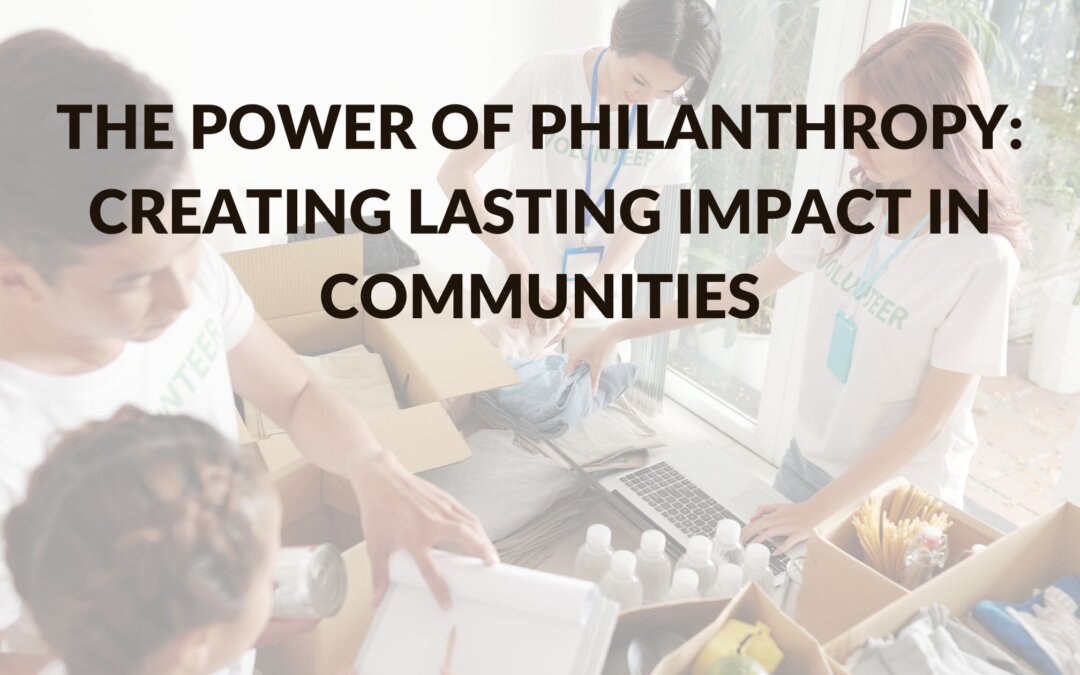Philanthropy, at its core, is about more than just donating money; it’s about creating meaningful change in communities, empowering individuals, and addressing pressing social challenges. Rooted in compassion and a drive to improve the world, philanthropic efforts can uplift those in need and tackle systemic issues head-on. The impact of philanthropy is felt by those who receive help and those who give, as they experience the fulfillment that comes from helping others.
Transforming Communities
One of the most potent aspects of philanthropy is its ability to transform communities. When individuals, corporations, and foundations commit to philanthropic efforts, they often address needs that traditional systems overlook. Whether building new educational facilities, funding healthcare programs, or providing job training for underserved communities, philanthropy can be the backbone for projects that make communities more resilient and self-sufficient. Organizations like the Gates Foundation have invested billions to improve healthcare and reduce poverty globally, setting a high standard for what philanthropy can achieve.
Supporting Systemic Change
Philanthropy is evolving to focus more on the root causes of social issues rather than just alleviating symptoms. This shift is often called “strategic philanthropy,” where donors carefully target their giving to maximize impact. For example, some philanthropists focus on programs that increase food security through agricultural training or sustainable farming practices instead of providing temporary food assistance. Strategic philanthropic investments aim to change the systems perpetuating inequality, helping create a lasting impact beyond temporary relief.
Corporate Philanthropy: A Growing Trend
Today, corporations are increasingly incorporating philanthropy into their business models, recognizing that social responsibility is essential for their brand and community. Many companies, like Patagonia, Ben & Jerry’s, and Salesforce, contribute through monetary donations and by engaging their employees in volunteerism, adopting sustainable practices, and supporting fair labor conditions. Corporate philanthropy benefits the business by enhancing brand reputation and employee satisfaction while addressing social issues.
The Role of Individuals in Philanthropy
Individual contributions play a crucial role as well. Philanthropy is not just for billionaires; regardless of size, every donation can make a difference. Crowdfunding and social media have opened new doors for people to support causes they care about, and campaigns can reach vast audiences, making it possible for people from all walks of life to contribute to social change. The average person can support local food banks, fund scholarships, or even assist international aid efforts through accessible online platforms. This democratization of philanthropy allows anyone with a giving spirit to help build a better world.
The Personal Benefits of Giving
While philanthropy undoubtedly benefits those in need, it also profoundly affects the giver. Studies show that people who give their time or money to causes they care about often report higher happiness levels, lower stress, and a stronger sense of purpose. Philanthropy provides an opportunity to connect with others who share similar values, strengthening personal and professional networks and creating a sense of unity and collective action.
Looking Ahead
The future of philanthropy is bright, with growing awareness and innovative solutions emerging to address complex social problems. As more people recognize the potential of their contributions, philanthropy will continue to shape and strengthen communities worldwide. Whether through financial support, volunteering, or raising awareness, every individual and organization can drive positive change. In a world that often feels divided, philanthropy reminds us of our shared humanity and capacity to make a difference.

